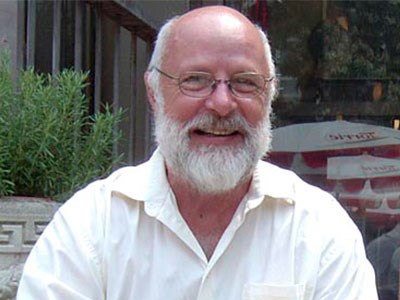Dr. Jack Hay believes the next cash crop for Northern Ontario lies not in open fields basking in sunshine, but along the dark forest floor in the decaying, eroded wood of fallen logs.
Hay, a professor emeritus at the University of Toronto’s immunology department, has been growing shiitake mushrooms on his 150-acre Moon Bay property near Parry Sound for nine years, and he’s now looking to for financial backing to commercialize the crop for the nutraceutical industry.
Nutraceuticals—the word is a mashup of nutrition and pharmaceutical—refer to products that offer some physiological benefits or protection against illness. They can be marketed as drugs, dietary supplements, or herbal products.
“We’re ready to start developing,” said, the founder of Moon Bay Biologics. “We’ve got about seven or eight products in mind, ranging from simple shiitake cream, which people would use on their skin, which might actually be helpful on psoriasis, to using shiitake in various recipes, as well as looking at wild species and assaying for various potential pharmacological effects.”
When he started out in 2005, Hay had 125 logs on his property, and he was marketing primarily to the culinary industry in nearby Muskoka. Nine years later, his crop has grown to 1,000 logs, and he estimates he’s supplied roughly 30 high-end restaurants in the region with his mushrooms.
It’s a blooming industry: there are now about 20 mushroom producers in Northern Ontario. The largest is at the Haliburton Forest where proprietor Peter Schleifenbaum maintains a crop of 7,000 logs.
Though scientific study supporting the benefits of shiitake mushrooms is still nascent, Hay said the fungi have for millennia been used for medicinal and health benefits, primarily in Chinese medicine, and he’s confident in the medicinal and health benefits of the crop.
North America’s top educational and medical facilities agree. Hay’s venture is being conducted in collaboration with researchers at the University of South Dakota, the Mayo Clinic in Minnesota, the University of British Columbia, the University of Toronto, and Nipissing University and Canadore College in North Bay.
Moon Bay has received funding from the Ontario Centres of Excellence (OCE), and was one of several Northern Ontario companies featured during the OCE’s Discovery Conference in Toronto in 2013.
To date, DNA identification has been completed on 21 mushroom species, and 40 fractions from the first four species are ready for testing. But to do that, Hay needs more funding to cover the salaries of the researchers doing the work. The plan is to approach venture capitalists for buy-in.
“Our next step would be to take these seven or eight products through to production and market them, test the market, do the background studies, make predictions of what we expect out of it, and see whether we can get some sales that really reflect that,” Hay said.
If the business case supports further development of the crop, Hay said he envisions a production facility in Northern Ontario, where the testing and development would take place. Students being trained in medical research in the North could then find employment at the facility, he predicted.
As demand increases, there could be additional spinoffs for Northern Ontario, and growers could even set up as far north as Attawapiskat, Hay said.
“I think it’s a great crop for Ontario because it’s the sort of thing that can have small independent producers…at any level you want,” he said. “The more we can product locally the better, and as the greenhouses get better, it extends the growing season; mushrooms are well suited to that environment as well. I think we can just become more self-sufficient.”




